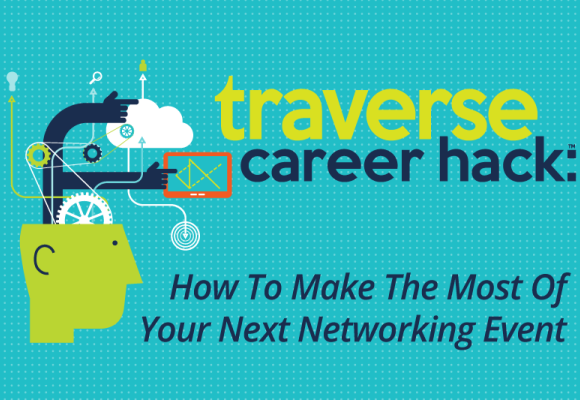- Written by Ellen Barker Dunagan
- Published:

An annual conference, a monthly professional association meeting, or that brand-new speaker series you decide to check out…if you have a networking event on your calendar, you might be faced with the challenge of how to make it a success, and leave feeling like it was time well spent.
Instead of: Standing awkwardly in the corner, fiddling with your business card, and hoping someone will make the first conversation move…
Try: Being intentional and proactive.
Consider these three steps for making your next professional event a success and leaving with a greater sense of fulfillment:
1. Set a goal. Having a clear, realistic goal of what you want to achieve forces you to do some important pre-work and set the stage for reaching that goal. Introduce yourself to the speaker at your conference’s morning plenary. When checking in to the event, make a point of telling someone in membership how much you are looking forward to the event. Check out how to volunteer at an upcoming meeting. These are just some ideas. Making these connections will also stretch your networking skills with a more diverse group of people.
2. Ask questions. People love to talk about themselves, and they will remember you for it. “How did you get into your career? What is the best part of your job? Why did you decide to come to this event?” By making your questions open-ended, you will get more useful information from the other person that triggers what you have in common, or that you can follow up on later. You will appear as a great listener and someone fun to talk to – even if you don’t say much.
3. Sit at the front of the room. Sitting in the back of the room might feel safe or allow you to duck out easily, but it won’t do much to broaden your network. Head for the front and you’ll be closest to the speakers, the moderators, and those introducing the speakers. I have found this is where the energy in the room resides. The front is where you’re more likely to meet participants who are eager to be part of the event, and these are the people who will converse with YOU more easily. Catching their enthusiasm will make you feel more engaged and give you a stronger sense of belonging.
Networking among a sea of unfamiliar faces can feel daunting, and walking away from a professional event “empty handed” sure is dissatisfying. However, by changing up your approach you can relax, enjoy the event, and leave with a much – much – bigger sense of fulfillment and accomplishment.



